I am new to Java 8 and getting a bit confused about the scope of Lambda Expression. I read some articles expressing that Lambda Expression reduces execution time, so to find the same I wrote following two programs
1) Without using Lambda Expression
import java.util.*;
public class testing_without_lambda
{
public static void main(String args[])
{
long startTime = System.currentTimeMillis();
List<Integer> numbers = Arrays.asList(1, 2, 3, 4, 5, 6);
for (int number : numbers)
{
System.out.println(number);
}
long stopTime = System.currentTimeMillis();
System.out.print("without lambda:");
System.out.println(stopTime - startTime);
}//end main
}
output:
2) With using Lambda Expression
import java.util.*;
public class testing_with_lambda
{
public static void main(String args[])
{
long startTime = System.currentTimeMillis();
List<Integer> numbers = Arrays.asList(1, 2, 3, 4, 5, 6);
numbers.forEach((Integer value) -> System.out.println(value));
long stopTime = System.currentTimeMillis();
System.out.print("with lambda:");
System.out.print(stopTime - startTime);
}//end main
}
output:
Is this means Lambda Expression requires more time to execute?

